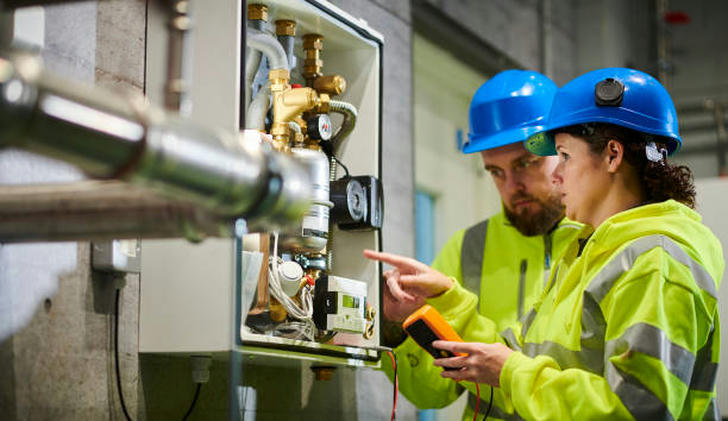The Growing Importance of HVAC Training in Modern Society
As temperatures become more extreme and energy efficiency gains importance, skilled HVAC technicians are increasingly valuable. HVAC courses provide the foundational knowledge needed to enter this essential trade, offering training in heating, ventilation, air conditioning, and refrigeration systems. These programs combine classroom learning with hands-on experience to prepare students for various career paths.

Why HVAC Skills Are in Demand
The HVAC industry continues to expand as older systems require replacement and new technologies emerge. Buildings of all types need climate control systems that operate efficiently while meeting environmental regulations. Technicians who understand both traditional HVAC equipment and newer smart technologies can find opportunities in residential, commercial, and industrial settings.
Government regulations regarding refrigerants and energy consumption have created additional demand for properly trained professionals. Many states require licensing that involves completing approved coursework and passing examinations. HVAC courses help meet these requirements while providing the technical knowledge needed for daily work.
What HVAC Courses Typically Cover
Quality HVAC training programs address multiple aspects of the trade. Fundamental coursework often includes electrical systems, refrigeration principles, and heating technology. Students learn to read blueprints, understand thermodynamics, and work with various tools and testing equipment. Safety training forms a critical component, particularly when dealing with electrical components and pressurized systems.
More advanced programs may cover specialized areas like geothermal systems, solar-assisted HVAC, or building automation controls. Some courses prepare students for specific certifications such as EPA Section 608 certification for handling refrigerants. The combination of theoretical knowledge and practical application helps build well-rounded skills.
Career Pathways After HVAC Training
Completion of HVAC courses can lead to several career options. Entry-level positions often involve assisting experienced technicians with installations, maintenance, and repairs. With additional experience and possibly further certification, technicians may advance to supervisory roles or specialize in particular system types.
Some graduates choose to focus on specific market segments. Residential HVAC work differs from commercial and industrial applications in terms of system size and complexity. Other potential career directions include system design, sales for HVAC equipment manufacturers, or positions with utility companies focused on energy efficiency programs.
The Value of Hands-On Training
While classroom instruction provides necessary theoretical knowledge, practical experience remains essential in HVAC education. Many programs incorporate lab work where students practice troubleshooting real equipment. Some courses offer internships or apprenticeships that allow students to work alongside professionals in the field.
Workshop components typically include working with actual furnaces, air handlers, and refrigeration systems. This hands-on approach helps students develop problem-solving skills and familiarity with tools they will use daily. The transition from learning concepts to applying them in realistic situations prepares students for workplace demands.
Certification and Continuing Education
After completing initial HVAC courses, many professionals pursue additional certifications to demonstrate specialized knowledge. Common certifications include those offered by organizations like North American Technician Excellence (NATE) or HVAC Excellence. These voluntary credentials can distinguish technicians in the job market.
The HVAC field requires ongoing learning as technology evolves. Many technicians take refresher courses or additional training to stay current with new refrigerants, efficiency standards, and smart system integrations. Some states mandate continuing education hours for license renewal, making periodic coursework a career-long consideration.
Choosing an HVAC Training Program
Prospective students have multiple options for HVAC education, including vocational schools, community colleges, and apprenticeships. Program length varies from several months to two years depending on depth and structure. Factors to consider include curriculum comprehensiveness, instructor qualifications, available equipment for hands-on practice, and job placement assistance.
Accreditation status can indicate program quality, as can graduate employment rates where available. Some programs have relationships with local employers that can facilitate job opportunities after completion. Visiting facilities and speaking with current students or alumni may provide useful insights when evaluating options.
The Future of HVAC Careers
Industry trends suggest continued growth in HVAC employment opportunities. Aging infrastructure requires replacement, while new construction demands modern, efficient systems. Increased focus on indoor air quality and energy conservation creates additional needs for skilled professionals.
Emerging technologies like variable refrigerant flow systems and advanced building automation will likely shape future HVAC work. Professionals who adapt to these changes through additional training may find expanded career possibilities. The fundamental need for climate control in buildings ensures that HVAC skills will remain relevant despite technological evolution.
Considerations for Prospective Students
HVAC courses offer a pathway to stable employment with potential for advancement, but success requires certain aptitudes. Mechanical aptitude, problem-solving skills, and comfort with technology help in mastering course material and performing job duties. Physical stamina is often necessary for handling equipment and working in various environments.
The field offers the satisfaction of solving practical problems and improving living conditions. While challenging at times, HVAC work provides tangible results that many find rewarding. For those interested in building technical skills for an essential service industry, HVAC training presents a viable educational option.
The combination of classroom learning and practical experience in HVAC courses prepares students for a career that contributes to comfort, health, and energy efficiency in homes and businesses. As environmental concerns and technological advancements continue shaping the industry, properly trained HVAC professionals will likely remain in demand.
